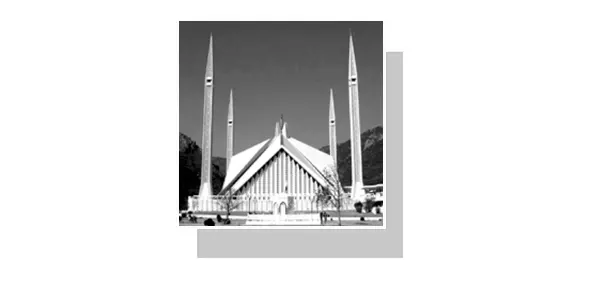THE martyrdom of Hussein is, in reality, the death of Yazid— after every Karbala, Islam comes alive again.
The 10th of Muharram holds a prominent place in Islamic history, for on this day, the grandson of the Prophet Muhammad (PBUH) attained martyrdom, making it indelible in history until the Day of Judgment. Imam Hussein (RA) could not have accepted the illegitimate caliphate of Yazid. By refusing to pledge allegiance to him, he embraced the martyrdom of truth. He chose martyrdom over loyalty to a wicked ruler and faced all the trials described in Surah Al-Hashr of the Holy Quran with a smiling face.
The tragedy of Karbala is a significant event in history because the travelers of Karbala were the shining lights of the Prophet’s (PBUH) family. The heirs of noble character and custodians of prophetic light, Imam Hussein (RA) not only resembled the Prophet (PBUH) in appearance but also embodied his character and was a treasure of knowledge and wisdom. His blessed face bore the kisses of Muhammad, the Messenger of Allah (PBUH) and his body was indeed part of the pure body; the blood that flowed through it was the sacred blood of Muhammad (PBUH). The martyrdom of Imam Hussein (RA) serves as a shining example for the oppressed and for truth-seekers standing against the forces of monarchism and tyranny until the Day of Judgment.
The battle of Karbala reminds us that no sacrifice should be spared for the sake of truth. The spirit of Shabir ignites the tradition of faith, conviction, truthfulness and adherence to principles. The event of Karbala is the fountain of Islam’s eternal message and the essence of sacrifice. The message of Hussein (RA) is for every sound heart. Imam Hussein (RA) had the power of truth and the shield of righteousness with him. Armed with courage and bravery, he stood firmly against falsehood in the field of Karbala. His martyrdom is a victory for humanity and upholds Islamic principles. The lessons from Karbala are a source of support for every truth-seeker, a symbol of truth against every falsehood and a voice of justice against every tyrant. It conveys a message of peace because the religion he sacrificed for is one of peace and security.
By sacrificing his life in the path of Islam, Imam Hussein (RA) protected the Shariah and safeguarded Islam. This event is significant in world history because a handful of individuals stood against falsehood with sincere passion, unwavering resolve and remarkable perseverance, making the distinction between right and wrong forever clear. No false power will henceforth succeed in deceiving people under the guise of truth. The grandson of the Messenger of Allah (PBUH) set an enduring example of choosing beheading over bowing to falsehood. The son of Fatimah al-Zahra (RA) drew a crucial line between truth and falsehood with his blood, proving that history remembers those with the courage to face execution rather than bow to tyrants. Karbala exemplifies the eternal struggle between right and wrong. This fight continues today and we must pledge to spare no effort against extremism, intolerance and in upholding Islamic traditions for national development and prosperity.
In the field of Karbala, Imam Hussein (RA) and his 72 companions demonstrated unwavering determination before Yazid’s army. Despite hunger, thirst and severe oppression, they sacrificed their lives without bowing to falsehood. The message of Karbala stands as a champion of justice and humanity. This historic battle serves as a vital source of religious and moral teachings, with Imam Hussein’s (RA) sacrifice imparting lessons in faith, patience and moral strength. It reminds us that a Muslim’s devotion should go beyond rituals and reflect in one’s character and actions. By laying down his life, Imam Hussein (RA) taught us that silence in the face of oppression is a grave sin. Today, as we confront injustice, exploitation and authoritarian regimes, the message of Karbala urges us to stand for truth. It advocates human dignity and the protection of rights. Imam Hussein (RA) emphasized that defending the honor of every human being is our collective duty. We must actively oppose tyranny and support the oppressed. In today’s world, adopting the teachings of Karbala is essential. Its message guides us on issues such as social justice, human rights and unity. We must shape our societies on the foundations of justice and confront every form of injustice. Karbala’s legacy also champions religious harmony and denounces sectarianism. Imam Hussein’s (RA) martyrdom reinforced that Islam stands for love, peace and unity. We must promote this spirit and work to unify the Ummah.
The ethical lessons of Karbala are equally vital. Imam Hussein (RA) showed that a true leader embodies justice, truthfulness and moral strength. These are the qualities our leadership must adopt. Yet sadly, today, the Muslim Ummah limits remembrance to the Day of Ashura, neglecting the true message. The sacrifices of Imam Hussein (RA) and his companions deserve to be honored year-round through action, not just remembrance. Karbala teaches us to resist oppression. Yet, while blood flows in Palestine, tyranny continues in Kashmir and Iran faces aggression, the Muslim world remains silent. The people of Palestine and Kashmir look to us, but we have failed to understand Karbala’s message. How will we answer on the Day of Judgment when asked, “Where were you during the Karbala of Palestine?” May Allah grant us the strength to embody the true message of Ashura and live with its spirit of sacrifice. Ameen! Centuries of events will be buried in dust, but the caravan of Karbala will continue to shine with light.
—The writer is Chairman, Tehrik Jawanan Pakistan.
(abdullahhamidgul1@gmail.com)


















